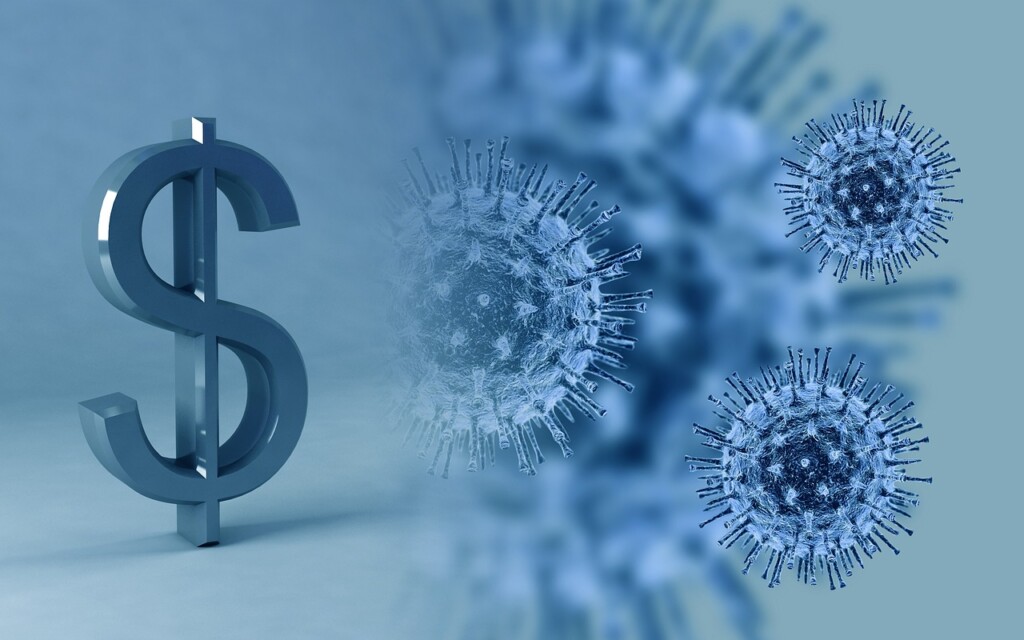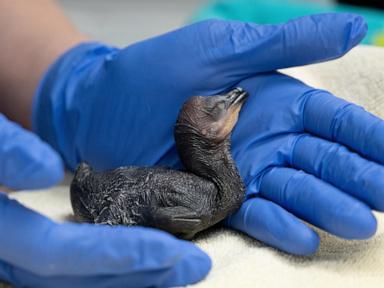
GMOs
Tell Sec. Kennedy: GMOs Should Not Be GRAS (Generally Recognized as Safe)
On March 10, 2025, Health & Human Services Secretary Robert F. Kennedy, Jr., promised to close the “generally recognized as safe” (GRAS) loophole that allows dangerous food additives to enter the marketplace without premarket safety testing. This could mean GMOs, given a blanket GRAS exemption in 1992, might finally be safety tested as food additives!
Genetically modified foods should have been regulated under Congress’s 1958 Food Additives law. This would have required each new GMO to go through a rigorous premarket review to be approved or rejected based on scientific evidence, but in 1992, the George H.W. Bush Administration’s Food & Drug Administration exempted GMOs from the law by declaring them “generally recognized as safe.” GRAS was meant for common, pre-1958 processed food ingredients like sugar and gelatin. It should never have been used to give a free pass to a new technology that would put things in our food we’d never eaten before.
Over the next several weeks, we’ll be highlighting each of the genetically engineered, synthetic, nanotech, and synbio Frankenfoods that entered our food supply through the GRAS loophole and demanding that Sec. Kennedy take these substances off the market unless and until they successfully complete the food additive review.
READ MORE & TAKE ACTION! Tell Sec. Kennedy: GMOs Aren’t GRAS (Generally Recognized as Safe)!

TAKE ACTION
This Week’s GRAS Action: Tell Sec. Kennedy to Ban Roundup Ready Crops
ROUNDUP READY CROPS – Engineered to withstand the direct application of Monsanto’s glyphosate-based herbicide Roundup, these were the first GMO crops. In 1996, Roundup Ready soy was planted; in 1997, cotton; in 1998, corn and canola; in 2008, sugar beets; and in 2011, alfalfa. When farmers didn’t rush to buy the expensive, patented seeds, Monsanto‘s seed monopoly allowed it to force them to by taking all the non-GMO seeds off the market. Its devious plot to increase its pesticide sales worked. Roundup quickly became the most-used agricultural chemical of all time, one of the health consequences being an explosion in non-Hodgkin’s lymphoma among pesticide applicators and farmers.
Monsanto’s Roundup Ready GMOs clearly should have been treated as food additives. If they were, Monsanto would have had to prove that no harm would result from their use, through extensive toxicity and feeding studies. Instead, home gardeners, pesticide applicators and farmers have been the guinea pigs. The data from this unethical human field trial is overwhelming. Roundup’s main ingredient glyphosate causes cancer, including non-Hodgkin’s lymphoma. It can cross the blood-brain barrier, making it a contributing factor in neurodegenerative diseases like Alzheimer’s and Parkinson’s.
People exposed to Roundup are at a higher risk of infertility. In women, glyphosate may be causing polycystic ovary syndrome and endometriosis, due to its endocrine-disrupting capabilities and reproductive toxicity. In men, glyphosate can negatively impact sperm quality and reduce sperm counts, while decreasing testosterone in male offspring. Mothers’ glyphosate exposure during pregnancy increases their children’s risk of abnormal brain development and poor functioning, including increasing the risks of autism spectrum disorder.
To learn more about the systemic effects of Roundup Ready crops, watch the documentary Into the Weeds that follows groundskeeper Dewayne “Lee” Johnson’s fight for justice against Monsanto (now Bayer) while suffering a debilitating and terminal illness.
TAKE ACTION: Tell Sec. Kennedy to Ban Roundup Ready Crops!
RFK Jr. wants to eliminate the FDA’s controversial food additive program. Here’s why that matters

MILLIONS AGAINST MONSANTO
Georgia Jury Orders Monsanto Parent To Pay Nearly $2.1 Billion in Roundup Weedkiller Lawsuit
By Wyatte Grantham-Philips, Associated Press:
“A jury in Georgia has ordered Monsanto parent Bayer to pay nearly $2.1 billion in damages to a man who says the company’s Roundup weed killer caused his cancer, according to attorneys representing the plaintiff.
The verdict marks the latest in a long-running series of court battles Monsanto has faced over its Roundup herbicide. The agrochemical giant says it will appeal the verdict, reached in a Georgia courtroom late Friday, in efforts to overturn the decision.
The penalties awarded include $65 million in compensatory damages and $2 billion in punitive damages, law firms Arnold & Itkin LLP and Kline & Specter PC said in a statement. That marks one of the largest legal settlements reached in a Roundup-related case to date.”
Read “Another Billion-Dollar-Blow to Bayer, but Company Closer To Blocking Future Lawsuits”
TAKE ACTION: Tell the EPA to Stop Bayer’s Sneak Attack on Pesticide Warnings!

BRAIN HEALTH
Altruism Is Actually a Fantastic Survival Strategy
By Nicole Karlis, Salon:
“What do we know about what happens in the brain during an act of altruism? In 2006, neuroscientist Jorge Moll and colleagues provided some of the first evidence to demonstrate what happens in the human brain when a person gives selflessly to another person. In their experiment, the researchers scanned participants’ brains using a functional MRI as participants made decisions about whether to donate money to a charity, oppose donating to a charity, or receive the monetary reward themselves. As they scanned the brains of participants while making decisions, researchers found that those who chose to keep the monetary reward for themselves experienced activity in the mesolimbic reward system, including the ventral tegmental area and the ventral striatum.
The mesolimbic reward system, sometimes referred to as the reward pathway or the mesolimbic pathway, is responsible for releasing dopamine, a neurotransmitter that allows us to feel pleasure and satisfaction. It also plays a role in motivating us to want more, like food and sex. This reward pathway regulates motivation, reinforces learning, and activates incentive salience, which is a cognitive process that makes us experience ‘desire’ or ‘want’.”

SUPPORT OCA & RI
Help Us Take Back Our Food System
For decades, genetically modified foods have been slipping into our food supply without proper safety testing. The FDA’s “generally recognized as safe” (GRAS) loophole has allowed corporations like Monsanto to push through untested, unproven GMOs that are now linked to cancer, infertility, and neurodegenerative diseases.
It’s time to hold them accountable! We’re demanding that the FDA revoke the GRAS status of Roundup Ready crops and put them through the rigorous food additive review process they should have undergone in the first place.
But we need your help! Your donation will support our advocacy efforts to push the FDA to take action on GMO safety and educate the public about the dangers of GMOs and Roundup.
We are committed to pushing for safer alternatives and always with small farmers and local food systems as our focus for making food systems and the earth a healthier more just place to live.
If you can, please donate today and help us take back our food system, promote organic and regenerative farming, and create a healthier, more just world for all!
Thank you for standing with us!
Make a tax-deductible donation to Organic Consumers Association, a 501(c)(3) nonprofit
Make a tax-deductible donation to Regeneration International, our international sister organization

SUSTAINABILITY
Indigenous-Owned Alberta Company Making Better Building Blocks — With Hemp
By Adrienne Lamb & Rick Bremness, CBC News:
“A new manufacturing plant in the northeastern Alberta community of Elk Point is blending hemp and other additives into concrete to make lightweight building blocks resistant to weather, fire and mould.
The company, called Asinikahtamwak — in Cree it means ‘works with rock’ — operates from a 13,000-square-foot building on the south end of Elk Point, 215 kilometres northeast of Edmonton.
Frog Lake First Nations owns 51 per of the venture. Edmonton-based Natural Fibre Technologies owns 39 per cent and the Town of Elk Point has a 10-per-cent stake.
Frog Lake First Nations councillor Cliffton Cross is “excited and proud” about the new business that’s already started construction on a two-bedroom, 1,250-square-foot prototype show home in the First Nation community.
The company is also experimenting with smaller projects like greenhouses, ice fishing shacks and one-room cabins constructed from structural insulated panels, another product made at the plant.
‘I believe it’s a part of our calling,’ said Cross. ‘If we ever had a moment in history where we had to provide answers on how to become more sustainable, more safe,’ it’s now, he said.”

PESTICIDES
Court Orders Trump Administration To Address Pesticide Risks To Endangered Species
Bobby Bascomb writes for Mongabay:
“A U.S. federal judge recently ordered the Trump administration’s Fish and Wildlife Service to complete assessments on the impacts of six pesticides and the steps needed to protect endangered species from them.
This isn’t the first time pesticide safety has come before the Trump administration. In 2017, the Fish and Wildlife Service (FWS) conducted an analysis revealing that two pesticides — malathion and chlorpyrifos — were so toxic they posed an existential threat to more than 1,200 endangered animal and plant species, according to an investigation by The New York Times.
However, just before the report’s release, political appointees in the Department of the Interior, which oversees the FWS, blocked its publication and initiated a new process designed to apply a much narrower standard that could downplay the hazards of the pesticides, the Times investigation noted.”

NEW RESEARCH
Silent X Chromosome Genes ‘Reawaken’ in Older Females, Perhaps Boosting Brain Power, Study Finds
By Nicoletta Lanese, Live Science:
“Females have one active X chromosome and one dormant X chromosome in each cell. But a study suggests that genes on the dormant X get “reawakened” later in life, potentially giving the brain a boost.
Dormant genes on the X chromosome may reawaken in old age, potentially giving the aging female brain a boost that the male brain doesn’t receive.
This phenomenon may help to explain why, on many measures, females show a higher level of cognitive resilience in old age than males do.
The findings come from a new study in lab mice, and the researchers also backed up the results with genetic data from humans. More research is still needed to confirm that the findings in mice translate to people, but overall, the work points to a potential difference in how female and male brains age.”

HEALTHY LIVING
Eating Citrus May Lower Depression Risk
Saima Sidik writes for The Harvard Gazette:
“We found that eating one medium orange a day may lower the risk of developing depression by about 20 percent. And the effect seems to be specific to citrus. When we look at people’s total fruit or vegetable consumption, or at other individual fruits such as apples or bananas, we don’t see any relationship between intake and risk of depression.
It’s hard to compare the effectiveness of citrus to traditional antidepressants, such as selective serotonin reuptake inhibitors, because we’re talking about preventing depression, and those drugs are usually used to treat depression once a person is already experiencing it. In the future, eating citrus could perhaps be part of a strategy for managing depression that also involves these more traditional pharmaceuticals. But more research is needed before we can conclude that.
‘I think people know intuitively that the foods we eat impact our mood. We even have a term for this: comfort foods.’”
Read about how the bacterium F. prausnitzii may link citrus consumption with good mental health

SUSTAINABLE LIVING
The OCA’s Monthly 3
OCA’s Monthly 3 offers three simple, impactful actions each week to drive change in environmental policy, sustainable agriculture, and personal health. These actions are designed to raise awareness, influence decision-makers, and create lasting change. We’ve already seen significant victories, but real change happens through collective action. By committing to just three actions each week, you become part of a movement for a healthier planet and a more just food system. Together, we can make an even bigger difference.
This month’s 3 actions:
1. Take action & sign the petition: Ban Roundup, Don’t Bail Out Bayer!
Experts warn of a clear link between agricultural chemical exposure and rising cancer rates, with Iowa having the second-highest cancer rate in the nation. Bayer, which produces 70% of North America’s Roundup in Muscatine, Iowa, has already paid $10 billion in settlements but faces billions more in unresolved claims. Despite this, an Iowa Senate committee passed a bill on February 19, 2025, shielding Bayer from lawsuits over its glyphosate-based herbicide. Meanwhile, legislators in multiple states are working to protect Bayer from liability, making it crucial for the public to push back against corporate influence. Writing to your state legislator ensures your voice is heard, shapes policy, and strengthens democracy by holding officials accountable.
2. Personal Health Change your Tea Tea-Drinking Habits and Reduce Your Exposure to Microplastics
Say no to teabags and avoid drinking tea from them at home or cafes. Swap to loose-leaf tea with stainless steel infusers or choose tea bags made from natural, biodegradable materials. Certain teabags, especially those made from polypropylene or nylon, can release billions of microplastic particles into your drink, which may increase the risk of cancer, heart disease, and reproductive issues. Microplastics can also carry harmful chemicals and pathogens. By making the simple switch to loose-leaf tea and stainless steel infusers, you can significantly reduce your exposure.
Here are some more ideas for reducing your microplastic exposure
More about teabags and microplastics
Counteract impacts of microplastics
3. Environment Think Twice About Your Avocados
When shopping for avocados, look for those that are organic and fair trade, or grown in California, as non-organic avocados from Mexico often come from recently deforested land, sometimes cleared illegally through arson or criminal activity. The expansion of avocado orchards in regions like Michoacán has led to significant environmental destruction, including deforestation in protected areas, and has fueled organized crime, land grabbing, and human rights violations. By choosing organic, fair trade, or sustainably grown avocados, you support environmental conservation and uphold human rights, making a positive impact on both people and the planet.

LITTLE BYTES
Other Essential Reading and Videos for the Week
How Trump’s Funding Freeze Is Affecting American Farmers
Watch: How Livestock Can “Green” Global Deserts and Restore Degraded Land
Listen: Were the Covid Lockdowns Worth It? The Daily
The North Dakota Ruling Against Greenpeace Is a Threat To Free Speech
This Is Why Canada Has Plenty of Eggs — And the U.S. Doesn’t
You’re Cooking With One Onion. You Should Be Cooking With Four
River Rescue Kits Empower UK Communities to Tackle Sewage Pollution
Could a Tattoo Raise Your Risk of Skin Cancer? Twin Studies Suggest a Link.
England’s River Ouse Makes History as First To Gain Legal Rights
What Should I Feed My Compost?
Connecting Farms, Designers, and Markets: A Model for a Sustainable Textile Future
How World’s Worst Expo Became a Popular Vintage Fashion Hub in Sacramento
6 Tips for Supporting Pollinators in Your Yard This Spring, According to Pro Gardeners
Breast Cancer in Young Women with Prolonged Contact between Their Breasts and Their Cellular Phones
The post Organic Bytes Newsletter #888: GMOs Should Not Be GRAS! appeared first on Organic Consumers.
.png)



















 English (US)
English (US)